Workshop with Glasgow City Councillors
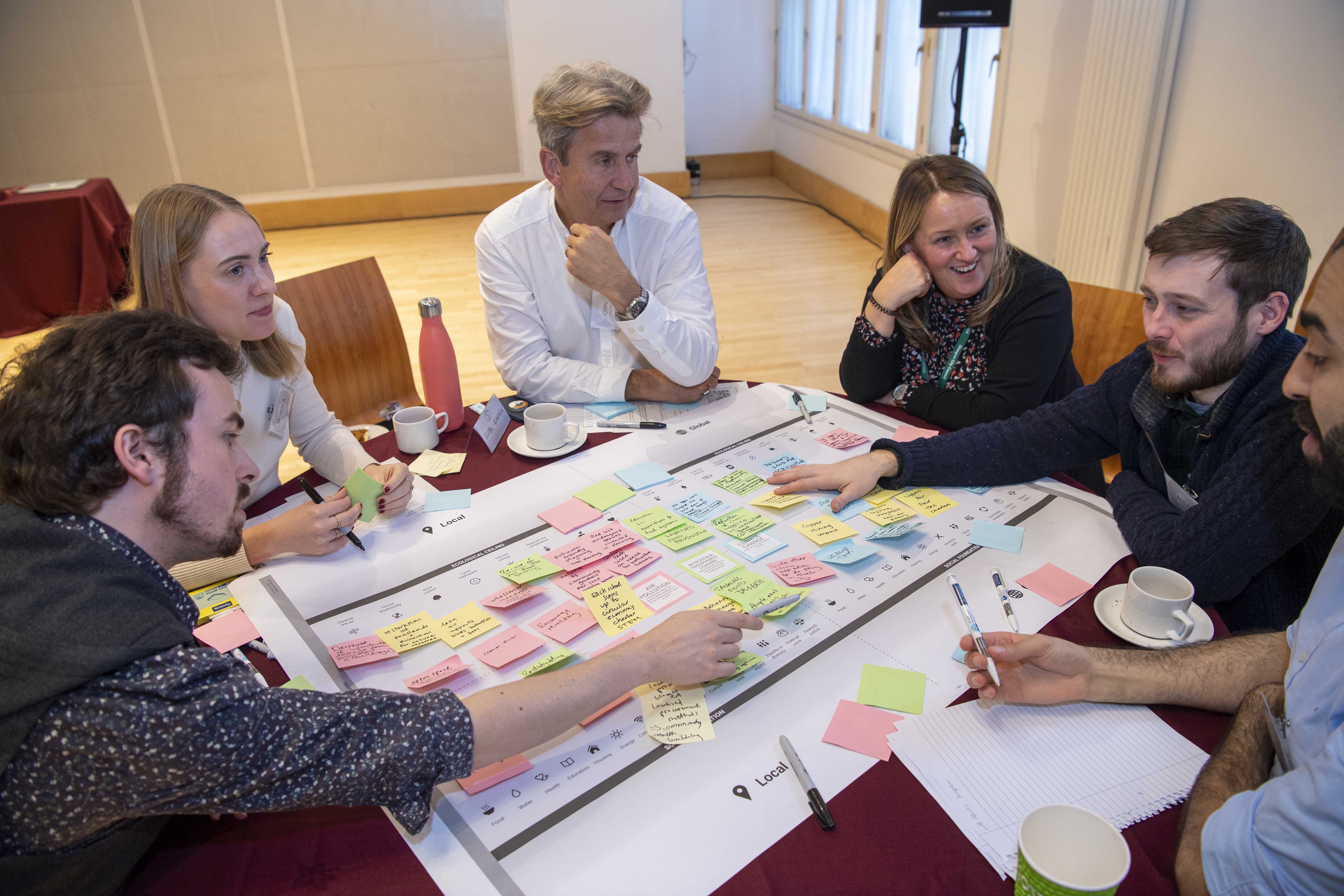
GALLANT’s City Portrait team held a Doughnut workshop with Glasgow City Councillors on 26 October 2022.
The event was designed to spark discussion between Glasgow’s elected politicians and our researchers about how Glasgow can become a ‘Thriving City’, in support of its COP26 legacy ambitions toward a just and sustainable future in partnership with C40 Cities. We shared some of our desk-based research with the participants, on Glasgow’s current social and ecological wellbeing targets and indicators, to show where our biggest challenges exist, as well as some of our largest opportunities.
We were thrilled to be joined by Kate Raworth and Leonora Grcheva from the Doughnut Economics Action Lab (DEAL). Kate, the author of Doughnut Economics, introduced the principles of the local doughnut framework to the room. We heard about the difficult but essential balance that a thriving society must strike, between improving social wellbeing and maintaining the health of the planet.
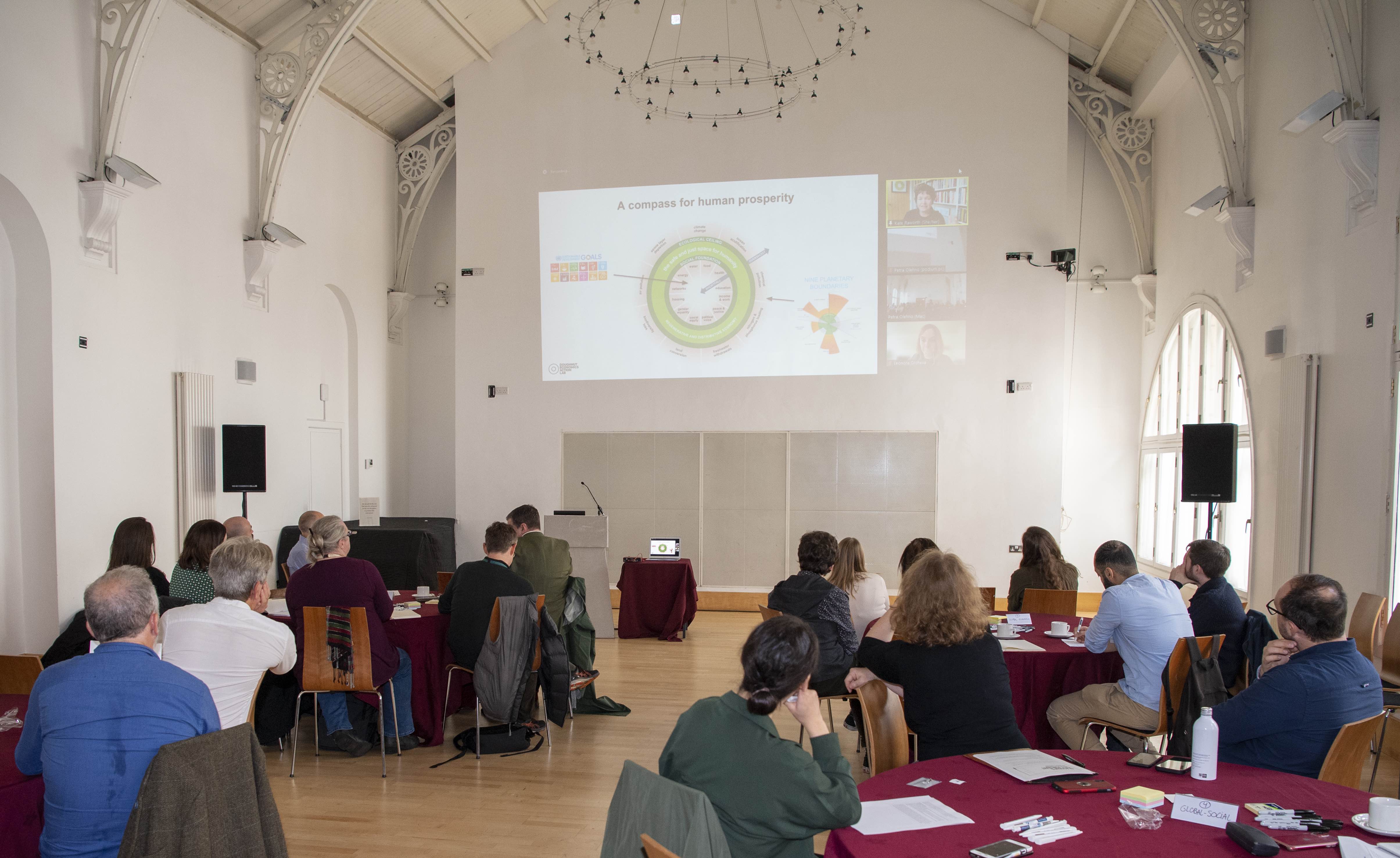
Leonora, the Cities and Regions Lead at DEAL, shared international examples and learning from cities that are working to implement Doughnut Economics principles at the city scale. We heard about Amsterdam’s progress towards a Circular Economy, Barcelona’s engagement with citizens for Doughnut-oriented policy development, and Nanaimo’s use of the Doughnut as a unifying, guiding framework for their council.
The presentations from Kate and Leonora can be viewed here.
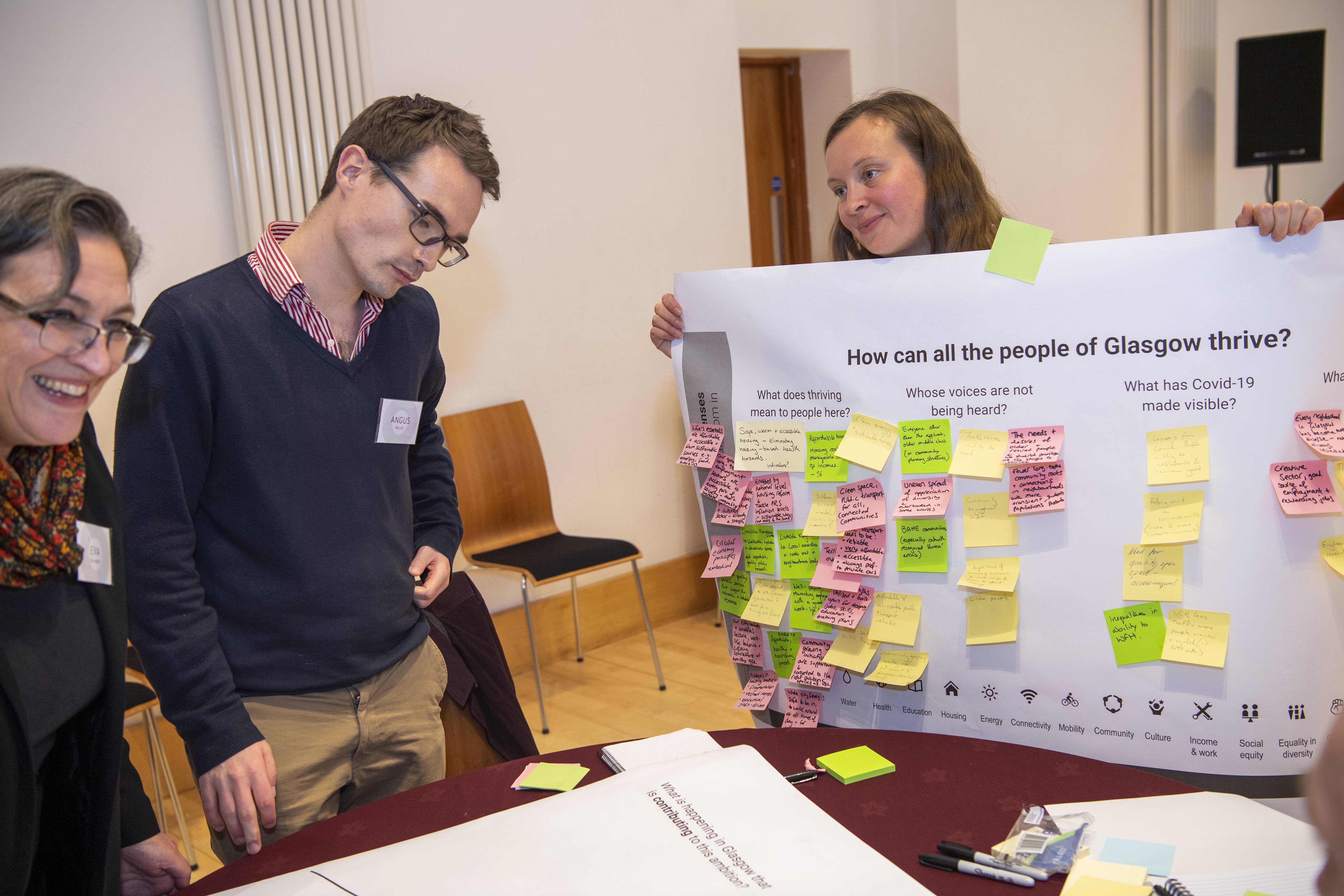
We asked participants to think about how the doughnut concepts apply to Glasgow, and what we would need to make happen in order for Glasgow to ‘get into the Doughnut’ – the fair and just space between human needs and planetary health. In groups, we thought about the City Portrait’s four lenses: local-social, local-ecological, global-ecological and global-social. Each lens comes with its own important dimensions, and our four groups proposed hopes and ambitions for a Glasgow that might be described as ‘thriving’ in each lens.
A few examples for each lens are captured below:
|
|
What would thriving look like in this lens? |
What needs to happen for Glasgow to achieve it? |
|
Local-Social
|
Safe, warm, and affordable housing for all residents, in liveable neighbourhoods linked by walkable, wheelable (suitable for anyone on wheels e.g. scooters, wheelchairs) and cyclable streets. Everyone’s voices are heard, including our youngest and oldest. |
We need to reduce housing costs for many residents, to a manageable proportion of income. We need to provide more equal access to good quality, safe open spaces. |
|
Local-Ecological
|
Protected habitats for all of Glasgow’s wildlife. The City’s parks support clean air, biodiversity, pollinators, and water systems (to minimise flood risk). |
We need to prioritise changes to policy, planning powers and decision frameworks that ensure community and ecological needs are met. |
|
Global-Ecological
|
Great local public transport and renewable energy networks. Plentiful space for biodiversity, community gardens and allotments, with opportunities to volunteer in these spaces. |
We need to invest in public transport and disincentivise use of private cars for short journeys. We need to shift to more sustainable city building practices and materials, including widespread heat pump installations. |
|
Global-Social |
Reduction of waste, pollution and exploitation in our supply chains throughout the world e.g., the fashion and food industries. |
We need to mainstream practices that support second-hand goods, re-use, repurpose, and repair of items, and remove any related stigmas. |
We also discussed some of short-, medium- and long-term priority actions that are needed to make progress on these goals. This revealed some of the challenges that will need to be addressed to create the right conditions for the long-term ambitions to be feasible.
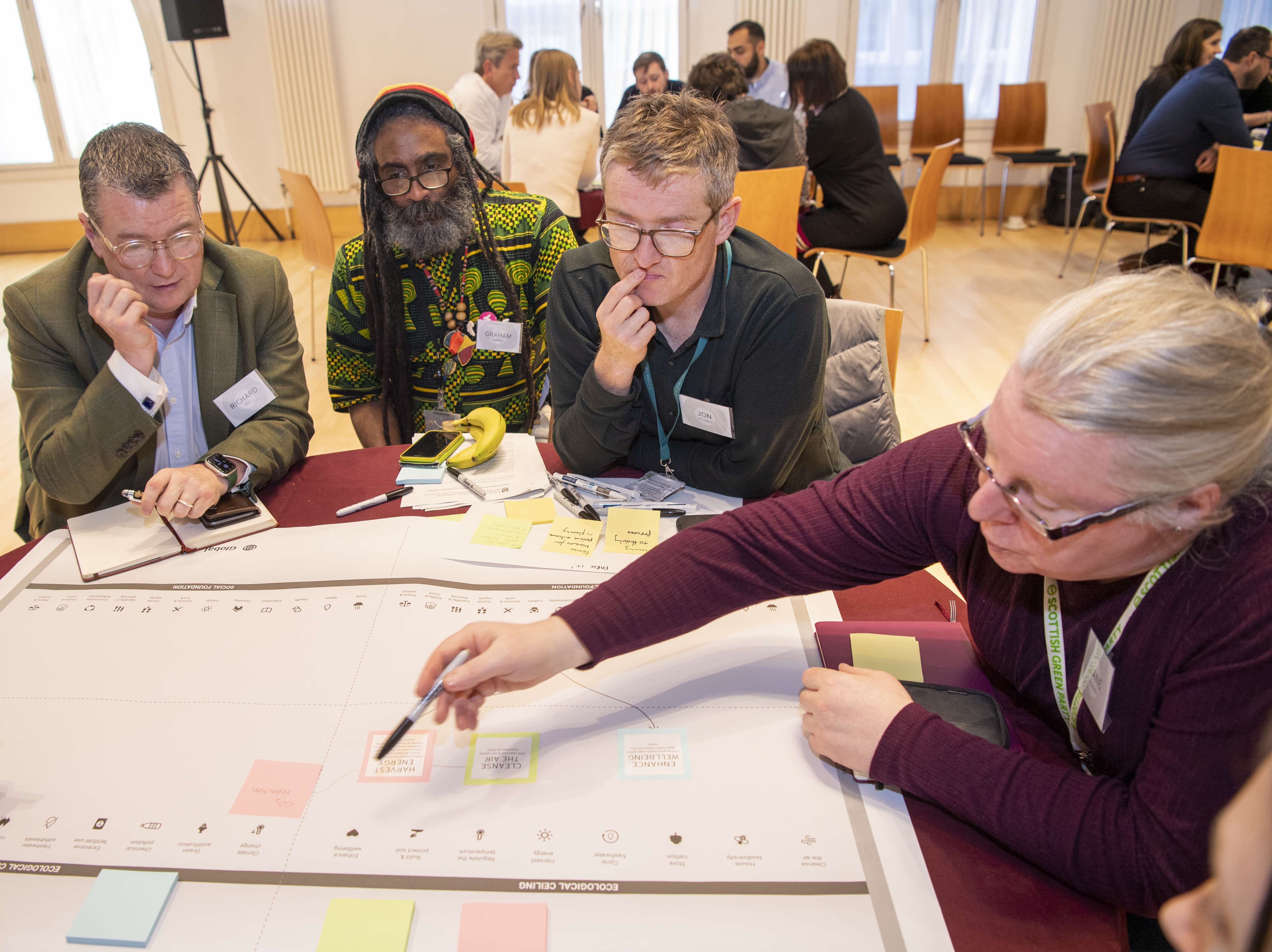
For example, in the Local-Social lens, a top priority both immediately and in the long-term is housing. There is an urgent need to retrofit Glasgow’s housing stock, to make it healthier for both inhabitants and the environment. Short-term and medium-term action, however, is likely to be needed to alter some of the restrictions and regulations surrounding the improvement of shared buildings (such as tenement blocks). It was recognised that significant time and investment would be required for training and skills education to build the necessary workforce capacity for carrying out these energy efficiency improvements.
Our conversations revealed some of the delicate balances we need to achieve, both between social and ecological concerns, between overall efficiency improvements and increased equity, and between short-term and long-term planning.
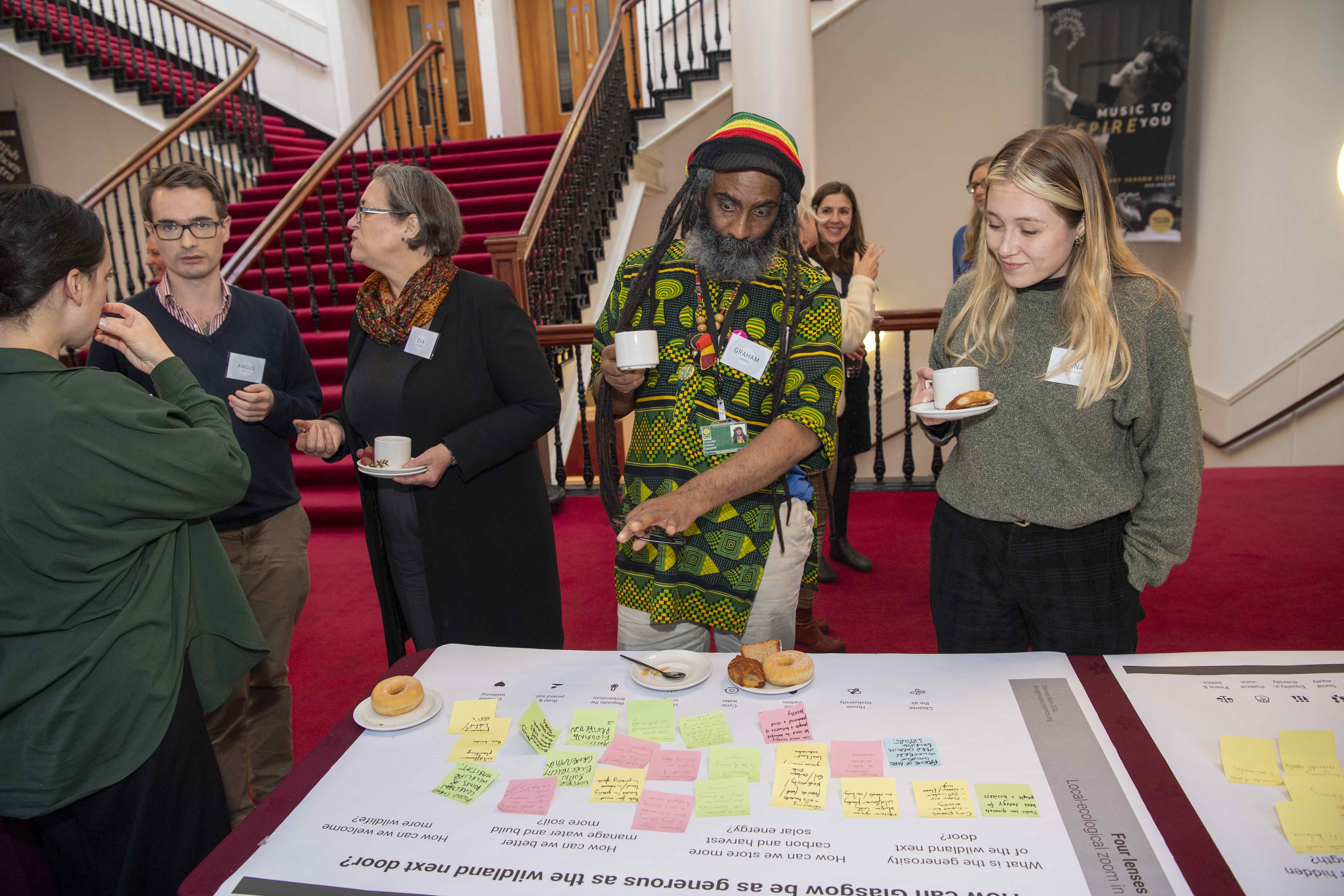
The insights collected during this workshop will be included in the full Glasgow City Portrait report, due for launch in Spring 2023.
Summary written by Annika Hjelmskog, Research Associate for Glasgow's City Portrait
- Contact Project Research Associate Annika Hjelmskog for more information
- Glasgow TCI City Portrait Launch at COP26
- GCP Workshops
- The GALLANT Programme
- The Thriving Cities Initiative
- More on City Portraits from TCI
- More on Doughnut Economics

